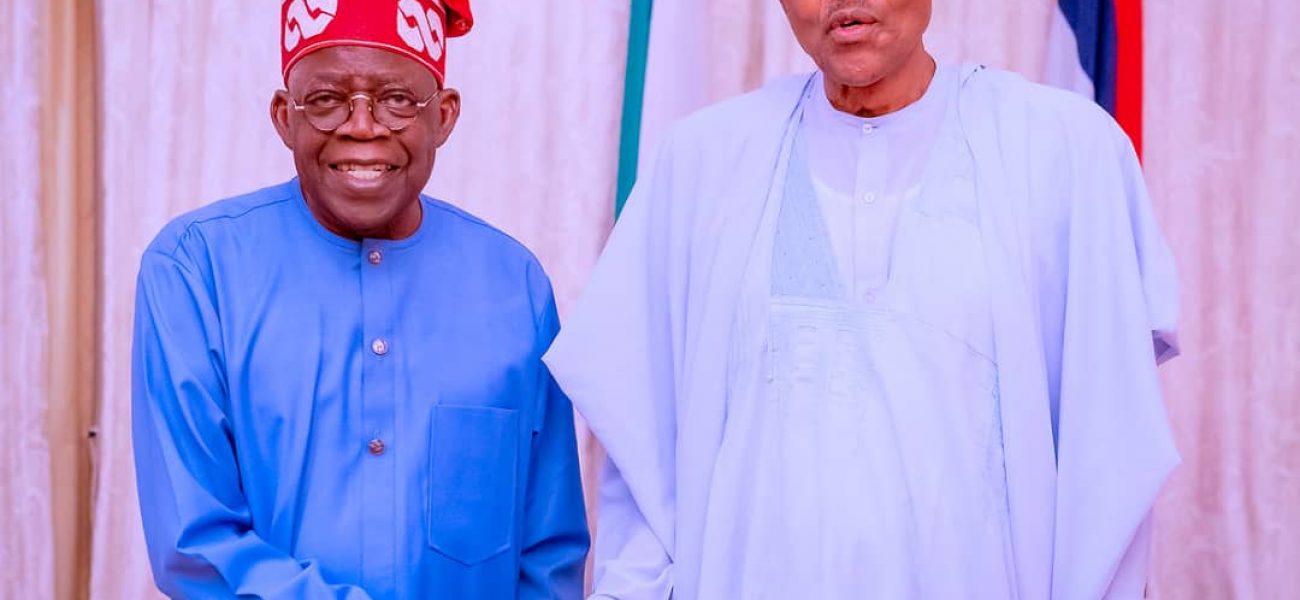After eight tortuous years, President Muhammadu Buhari’s tenure as President of Nigeria will come to an end on May 29, 2023 when he hands over power to President-elect, Bola Ahmed Tinubu. At what is expected to be a colourful ceremony at Eagle Square, Abuja, Tinubu will be sworn in together with Kashim Shettima, as President and Vice President of the Federal Republic of Nigeria. Tinubu’s election had been controversial with election observers and his opponents at the elections accusing the Independent National Electoral Commission (INEC) of failure to conduct elections in line with its procedure. INEC had on March 1, announced Tinubu as winner of the elections with 8,794,726 votes. His closet challenger, Atiku Abubakar of the main opposition People’s Democratic Party (PDP) scored 6,984,250 votes. The third highest votes in the announced results had surprise candidate, Peter Obi of the Labour Party winning 6,101,533 votes.
Already, activities leading up to the inauguration have kicked off. Outgoing President, Muhammadu Buhari has been on a spree of project commissioning. The Dangote Refinery in Lagos, which will yet begin production was commissioned on May 22. He also held an emergency cabinet meeting on Tuesday, May 23 to commission the much awaited second Niger bridge and is expected to hold a valedictory cabinet meeting on Wednesday, May 24. Buhari will dissolve his cabinet on Friday, May 26 ahead of Tinubu’s swearing in on Monday, May 29. As Buhari’s tenure ends, a search for his legacy from his eight-year rule is still on-going, with lots of critics describing his tenure as eight wasted years. His supporters point to some infrastructural projects carried out by him, including delivery of the second Niger bridge, completion of the President Jonathan-initiated Kaduna-Abuja trainline, among other achievements. Yet, the concern is that President Buhari who first won elections in 2015 on the mantra of waging war against corruption, ending insecurity and eliminating profligacy in government has failed on all of these fronts. Critics state that insecurity levels in the country are worse than it was when he came into office. Critics also cite incredible levels of corruption and his inability to deal with it as evidence of his failed legacy. The economic situation is described as being at its worst. Nigeria’s debt profile which stood at $7.25 billion in 2015 has now risen to an all-time high of $41.69 billion and counting. President Buhari has also been accused of incredible levels of nepotism and exclusion of persons other than those of his religion and tribe, from government. Most of his appointees are described as lacking in the knowledge and skills or even qualifications needed to improve the country.
Although the conduct of the 2023 general elections remains controversial and dogged by on-going election petitions in the courts, the Constitution requires that the declared winner be sworn in and carry on the business of government. With Tinubu being sworn in on May 29, Nigerians have been short in outlining their expectations of the new administration. Some of these expectations include:
- Healing the wounds of disunity, division and nepotism that were deepened during President Buhari’s eight-year reign;
- Appointment of competent hands to run government at all levels;
- Resolving the age-long conversation surrounding Nigeria’s restructuring, which means practice of true federalism, devolution of powers, equitable fiscal governance;
- Reduction of over bloated government and hemorrhaging of national assets and the economy;
- Reform of the electoral system;
- Reform of the national security architecture;
- Decentralisation of the Police, etc.
Indeed, most Nigerians cannot wait to see the back of the Buhari government in the expectation that a sworn in President Tinubu could begin to heal the wounds inflicted by eight brutal years of Buhari’s reign. As for Tinubu, a new Constitution Alteration Act passed in 2023 now mandates the President and Governors to submit the names of their nominees for the positions of Ministers and Commissioners to the National Assembly and State House of Assembly, as the case may be, within six months from the date of inauguration. This implies that it will not be business as usual for incoming governments at the Federal and State levels, where the President or a Governor was at liberty to constitute his cabinet almost a year into their tenure as was experience in the past. They will be expected to constitute their respective cabinets within 180 days and hit the ground running with the business of government.
Nigerians and indeed the world, wait to see what difference a President Tinubu will make.

